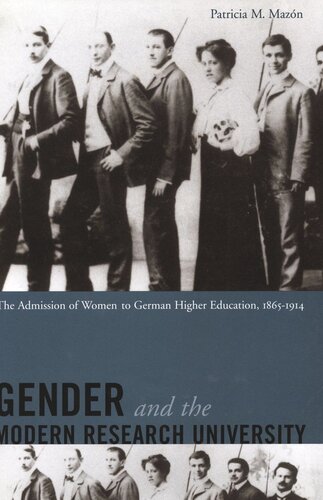

Most ebook files are in PDF format, so you can easily read them using various software such as Foxit Reader or directly on the Google Chrome browser.
Some ebook files are released by publishers in other formats such as .awz, .mobi, .epub, .fb2, etc. You may need to install specific software to read these formats on mobile/PC, such as Calibre.
Please read the tutorial at this link: https://ebookbell.com/faq
We offer FREE conversion to the popular formats you request; however, this may take some time. Therefore, right after payment, please email us, and we will try to provide the service as quickly as possible.
For some exceptional file formats or broken links (if any), please refrain from opening any disputes. Instead, email us first, and we will try to assist within a maximum of 6 hours.
EbookBell Team

4.0
26 reviewsIn the 1890s, German feminists fighting for female higher education envied American women their small colleges. Yet by 1910, German women could study at any German university, a level of educational access not reached by American women until the 1960s. This book investigates this development as well as the cultural significance of the tremendous debate generated by aspiring female students. Central to Mazón's analysis is the concept of academic citizenship, a complex discourse permeating German student life. Shaped by this ideal, the student years were a crucial stage in the formation of masculine identity in the educated middle class, and a female student was unthinkable. Only by emphasizing the need for female gynecologists and teachers did the women's movement carve out a niche for academic women. Because the nineteenth-century German university was the model for the modern research university, the controversy resonates with contemporary American debates surrounding multiculturalism and higher education.